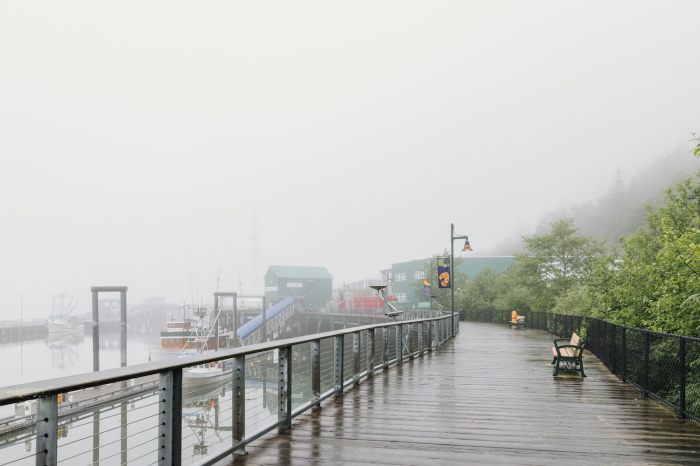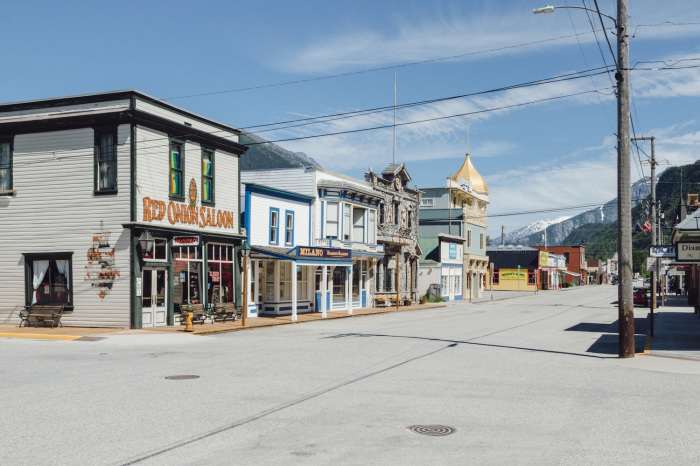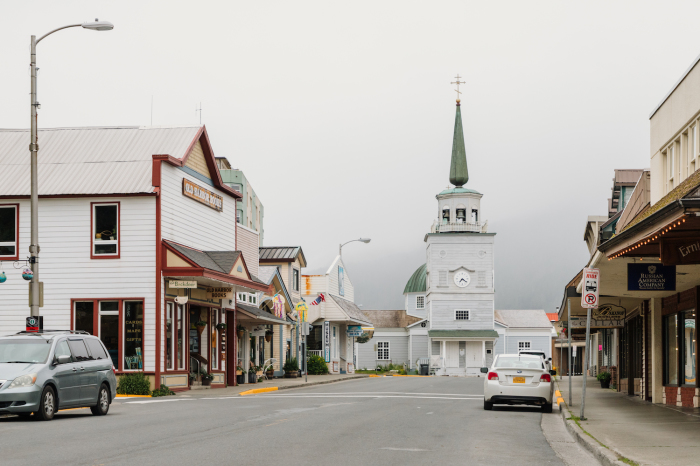Visiting Alaska as travel returns to normalcy

The 49th state and self-styled Last Frontier is benefitting big from the pent-up demand for summer travel.
Not only is Alaska open for tourism, but the state’s geographic vastness means social distancing was a thing well before coronavirus. It is no wonder, then, that airlines, including Alaska Airways and rival Delta Air Lines, have ramped up service as demand nears pre-pandemic levels.
“My administration is aggressively marketing Alaska and Alaskans to the rest of the country and world,” Gov. Mike Dunleavy said. “I am more than optimistic that the summer 2021 tourism season in Alaska will rebound and communities across the state will be able to welcome visitors and show off exactly what makes our state one of the best destination places in the world.”
That optimism was the reality of my recent experience traveling across southeast Alaska, also called the Inside Passage.
My trip started in the state capital of Juneau, which is only accessible by air or water.
A short walk from the very walkable waterfront is the State Museum, where I learned about Alaska’s fascinating history as a Russian colony. I further explored things during a walking tour with Juneau Food Tours. Besides seeing landmarks, the tour includes culinary experiences ranging from crab cakes at Tracy’s King Crab Shack to a drink in the old-school saloon at the National Register of Historic Places-listed Alaskan Hotel.
“Juneau is open,” Juneau Food Tours founder and chief eating officer Midgi Moore told me. “When you come on a tour, you are helping not just my company but probably five to eight other businesses.”
Leaving Juneau, I traveled about seven hours by ferry on the Alaska Marine Highway System to Skagway. Along the way, I saw fjords as spectacular as anything in Norway.
Skagway’s reason for existence is the Klondike gold rush of 1896 to 1899, when fortune seekers arrived here only to trek a further 500 miles to what is today part of Canada’s Yukon Territory.

The town, a remarkably well-preserved boom town, was a popular port for cruise ships until coronavirus paused the industry. The last big ships were seen in 2019.
“I’m hopeful that we will see somewhere between 60,000 to 100,000 cruise ship passengers between late July and early October,” Skagway Mayor Andrew Cremata said. “Our push to encourage independent tourism, both regional and national, has been an overwhelming success.”
Ahead of the expected regular visits by at least nine vessels, including Carnival, Norwegian and Royal Caribbean ships, the growing number of tourists coming on their own do not just fill a void.
Many of these visitors spend considerably more money than typical cruise passengers. Some hike the world-famous Chilkoot Trail. For others, it is about history and heritage of the Klondike Gold Rush National Historical Park — perhaps a relative was one of the stampeders who put this town on the map.
Skagway Brewing Company owner Mike Healy is minimizing some of the logistical issues that come with life in an isolated community by growing vegetables in an innovative aeroponic garden. So much so that he could soon have the capacity to supply locals and competitors alike with fresh greens. That’s a big deal since most of the food supply arrives on once-weekly barges.

Further down the Inside Passage is Sitka with a landscape that felt a lot like Nova Scotia’s Cape Breton.
“Our community’s low virus numbers allowed us to open up fully for the higher-than-expected visitor numbers,” Sitka Chamber of Commerce Executive Director Rachel Roy said. “Sitka, nestled between the mountains and the sea, has plenty of outdoors to refresh and recharge.”
This town of 8,881 at the last census — hardly small by Alaskan standards — was the capital of Russian America until the United States purchased Alaska in 1867 at a cost of $7.2 million.
While much has changed since the Stars and Stripes was first raised here, the Orthodox Cathedral of St. Michael the Archangel still towers over the downtown. The original 1800s edifice was destroyed by fire in 1967, although the cathedral that stands today is a wholly accurate re-creation of what once stood here. Some of the interior’s original fabric, including ornate icons, were saved through the heroic actions of the faithful. Beyond the cathedral are several other landmarks and attractions, including the comprehensive Sitka History Museum, the Russian Bishop’s House and the remarkable collection of carved totem poles at Sitka National Historical Park.
If projections pan out, Sitka will see many as 115,000 cruise passengers this summer and a remarkable 400,000 in 2022. That means now is the perfect time to visit Alaska because next summer could be a vastly different experience.
Follow @dennislennox on Instagram and Twitter.
Dennis Lennox writes about travel, politics and religious affairs. He has been published in the Financial Times, Independent, The Detroit News, Toronto Sun and other publications. Follow @dennislennox on Twitter.




























